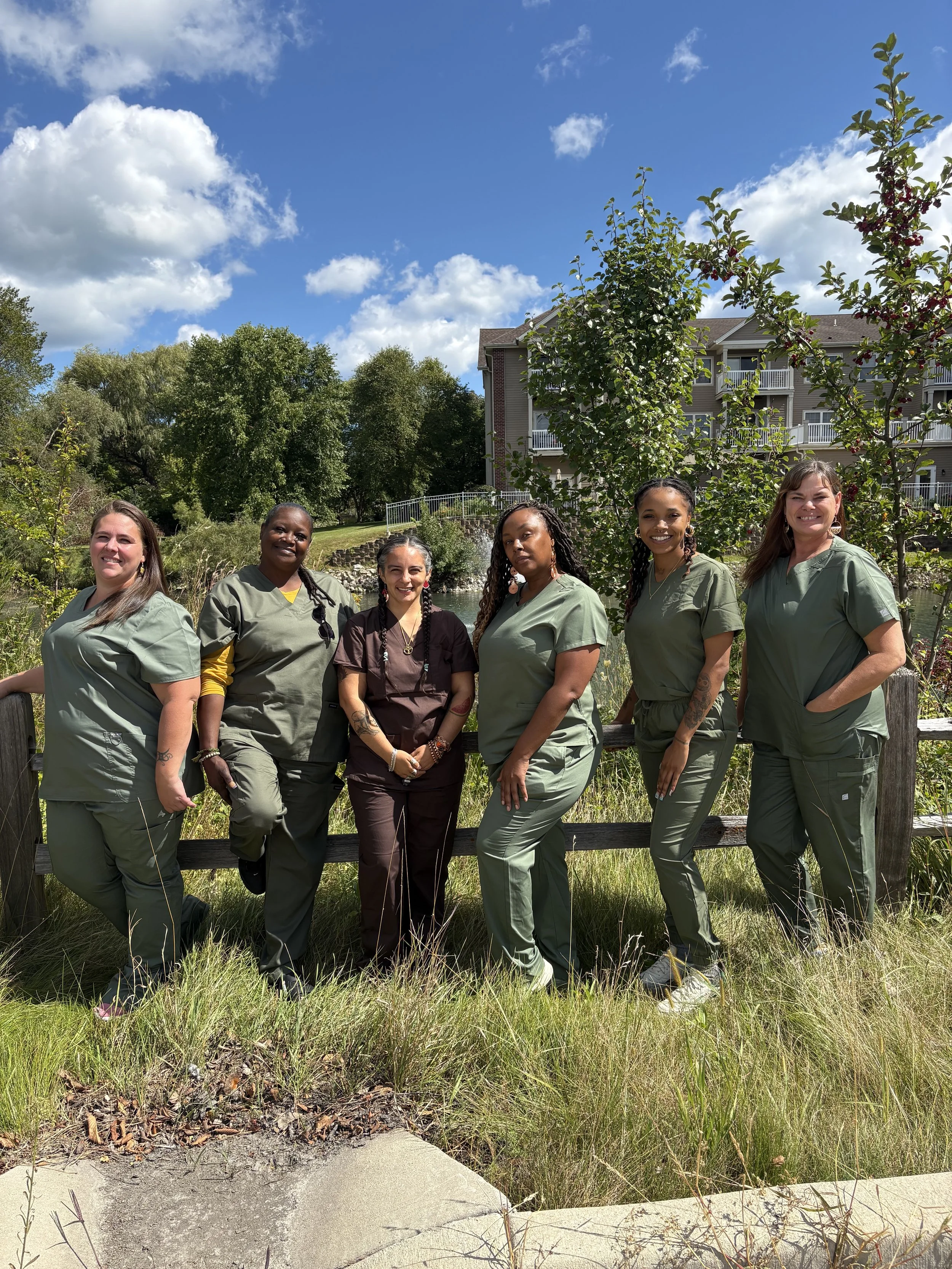Aja Healing and Masika Health Wellness, Inc
Aja Healing and Masika Health Holistic Medicine School
Aja Healing and Masika Health, Inc. is a new nonprofit created by Dr. Lakeeta Watts and Dr. Shanice Baquet in Wisconsin. The clinic combines natural and functional medicine with holistic therapies to support healing of the mind, body and spirit. Its services include personalized functional medicine programs, perinatal health services, energy and bodywork therapies (Reiki, chakra balancing and Ayurvedic therapies), community health training, holistic cancer‑care and detox protocols, holistic counseling, and IV hydration therapy. The nonprofit was established to address health inequities in the Milwaukee area by centering community and culture in natural healing.
The Holistic Medicine Internship provides hands‑on training and mentorship to individuals who want to become holistic medicine practitioners, community health workers or doulas. The internship is overseen by Dr. Watts and Dr. Baquet and draws on the diverse services offered through their clinic. Participants gain experience in:
Natural and functional medicine. Interns learn how to develop personalized wellness plans using herbal therapies, functional nutrition and Ayurvedic techniques to restore balance. They also observe and assist with IV hydration therapy and advanced functional blood analysis.
Perinatal health and community‑based care. The program teaches full‑spectrum doula care, lactation support, and community health education, addressing racial disparities in maternal and infant health outcomes.
Energy and bodywork therapies. Interns study Reiki, sound‑bowl healing, chakra balancing, Ayurvedic body therapies and emotional‑release techniques.
Holistic assessment tools. Training includes iridology (eye‑based health assessment), counseling methods grounded in mind‑body medicine and spiritual guidance.
Community engagement and advocacy. The program emphasizes community health workshops, advocacy for culturally responsive care and mentorship to support aspiring health workers. The nonprofit highlights its commitment to reducing systemic health inequities in Milwaukee by offering accessible, culturally rooted care and training the next generation of holistic practitioners.
Why it matters
Aja Healing & Masika Health, Inc. frames its internship program as part of a broader mission to make natural, culturally centered healing accessible to underserved communities. The organization explains that donations help provide affordable access to herbal therapies, detox protocols, energy healing and IV hydration for individuals who typically face barriers to quality healthcare. Funding also supports education and mentorship for interns, doulas and community health workers, creating sustainable health solutions rooted in community. This approach not only trains future practitioners but also addresses systemic health inequities by advocating for policy change and offering culturally responsive care in a welcoming environment.
How to support
The nonprofit encourages community members to “plant a seed” by donating. Contributions directly support internships, scholarships, and wellness programs that improve maternal‑infant health outcomes, empower community resilience and provide affordable holistic care. Supporters can contact Dr. Baquet or Dr. Watts through the clinic’s Wisconsin office for more information or to get involved.
Support Our Mobile Clinic Development
Aja Healing & Masika Health, Inc. is developing a mobile holistic health clinic to expand our reach into Milwaukee and nearby communities. Mobile health clinics are custom-built vehicles such as buses, vans or trailers equipped to deliver healthcare services on the road, bringing care directly to people who might not otherwise receive it. These clinics play an important role in health care by serving vulnerable populations: more than half of their clients are women and people from racial or ethnic minority groups, and many lack insurance or rely on public insurance. By meeting patients where they are, mobile clinics reduce barriers like transportation, cost and distrust, and have shown improvements in health outcomes while lowering costs.
Proven benefits of mobile clinics
Broad service mix: Mobile clinics provide urgent and primary care, preventive screenings, chronic disease management, behavioral health services, dental and prenatal care, and pediatric care. Many also offer specialty services such as mental-health support and mammography.
Improved access for underserved groups: Mobile clinics tailor services to specific populations. Surveys show that more than half of them target uninsured and low-income patients, and many focus on people experiencing homelessness or living in rural areas. They also serve veterans, migrants, school-aged children, residents of public housing and LGBTQ+ patients.
Lower costs and better outcomes: For every dollar invested, mobile clinics save around twelve dollars by reducing emergency-room visits and delivering preventive services. Each clinic typically prevents hundreds of emergency visits per year and preserves numerous quality-adjusted life years.
Community trust and empowerment: Mobile clinics build trust through partnerships with local community health centers, churches and social-service agencies. Patients often feel more empowered to navigate the broader healthcare system after receiving care from a mobile clinic.
Our plan for a mobile holistic health clinic
Integrative care on wheels: The mobile clinic will offer natural and functional medicine services—such as herbal therapies, nutrition consultations, Ayurvedic therapies, energy healing and IV hydration, alongside conventional screenings and primary care.
Focus on maternal and community health: We will provide lactation support, doula services and perinatal education, and host community workshops on nutrition, stress management and chronic-disease prevention.
Reach underserved communities: We aim to visit neighborhoods with limited access to holistic healthcare, reducing transportation and cost barriers while building trust through culturally sensitive care.
Collaborate with community partners: We plan to partner with local health centers, churches, schools and nonprofits to coordinate services and connect patients with social resources.
Call to action
Developing the mobile holistic health clinic is an ambitious project that requires community support. Donations and partnerships will help us purchase and outfit the mobile unit, train staff, and offer services on a sliding scale. By investing in this mobile clinic, you will help extend holistic, culturally rooted healthcare to people across Milwaukee, reduce health disparities and create a more equitable wellness landscape.


